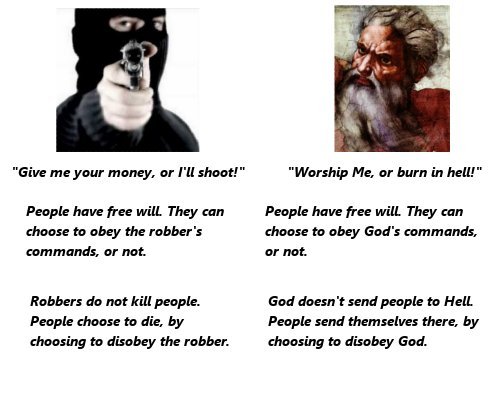I am greatly familiar with the trilemma. I didn't need to quote the entire trilemma argument to make the point that I needed to make. That doesn't render the quote inaccurate or inappropriate in the least. The entire trilemma argument supports me in every way.
Forgiveness, obviously, is a big part of the New Testament message, but it too is backed by the threat of hell and the reward of heaven. Jesus ultimately offers motivation in nothing but these two forms: punishment or reward, hell or heaven.
Jesus rarely uses punishment as a motivator and I wouldn't consider motivating people with reward as very "fire and brimstone" preachy. The Acts of the Apostles are significantly more "fire and brimstone"-y, but even those have the ultimate message of salvation not damnation, and it is an important difference.
[color="#1C2837"]You're being awfully unclear and vague here. Please tell me, precisely, how you interpret his mentioning of hell. Is he, or is he not, threatening you with hell? And if you think not, please provide your justification for ignoring his explicit mentioning of hell and "fire that never shall be quenched."
[/quote]
He isn't threatening anyone with anything.








